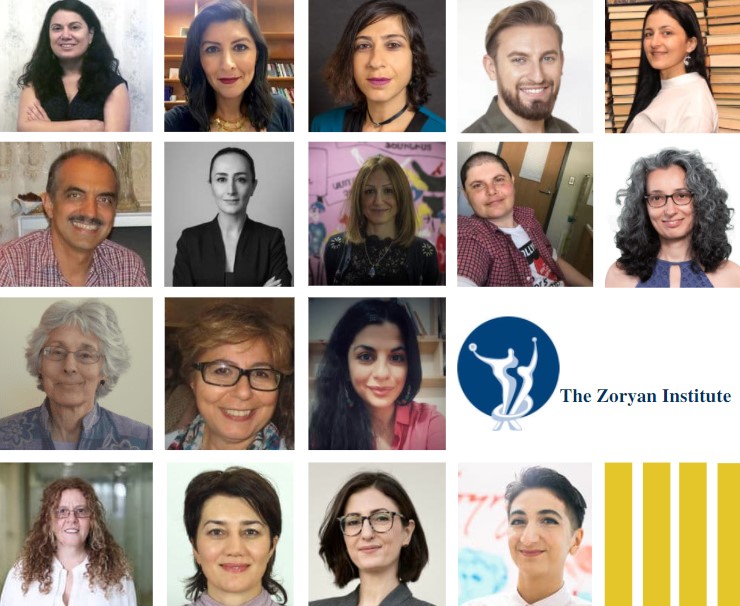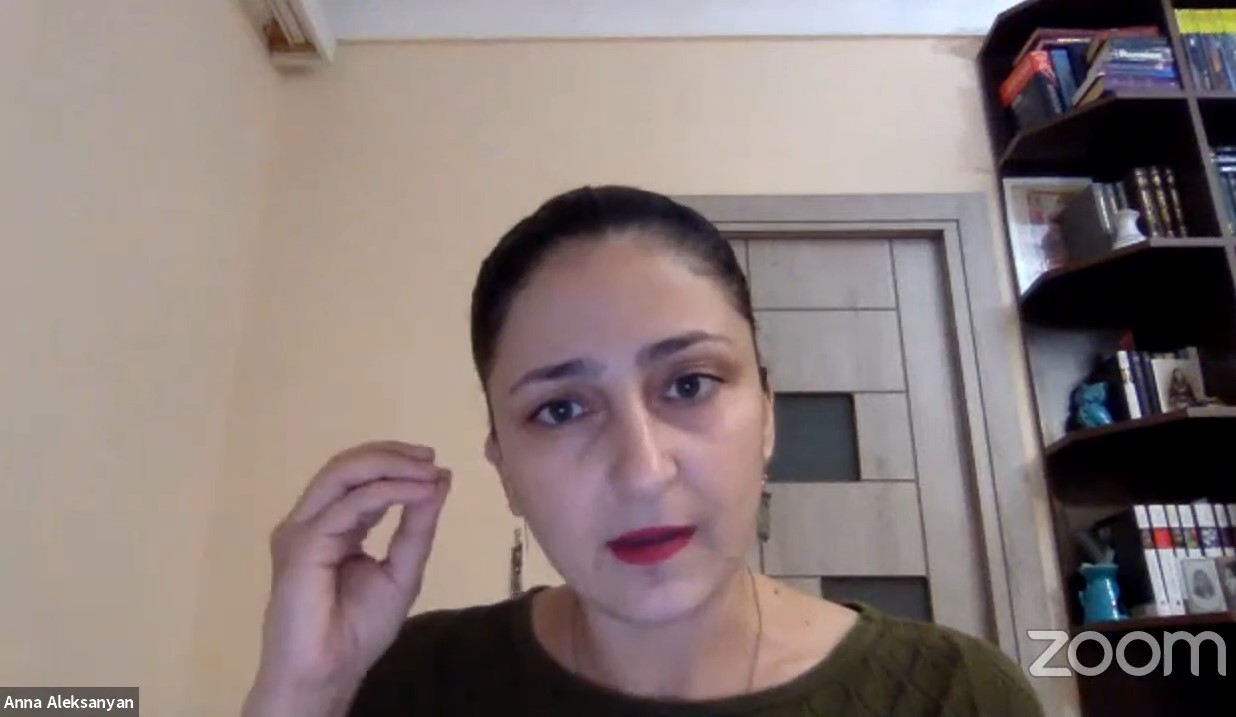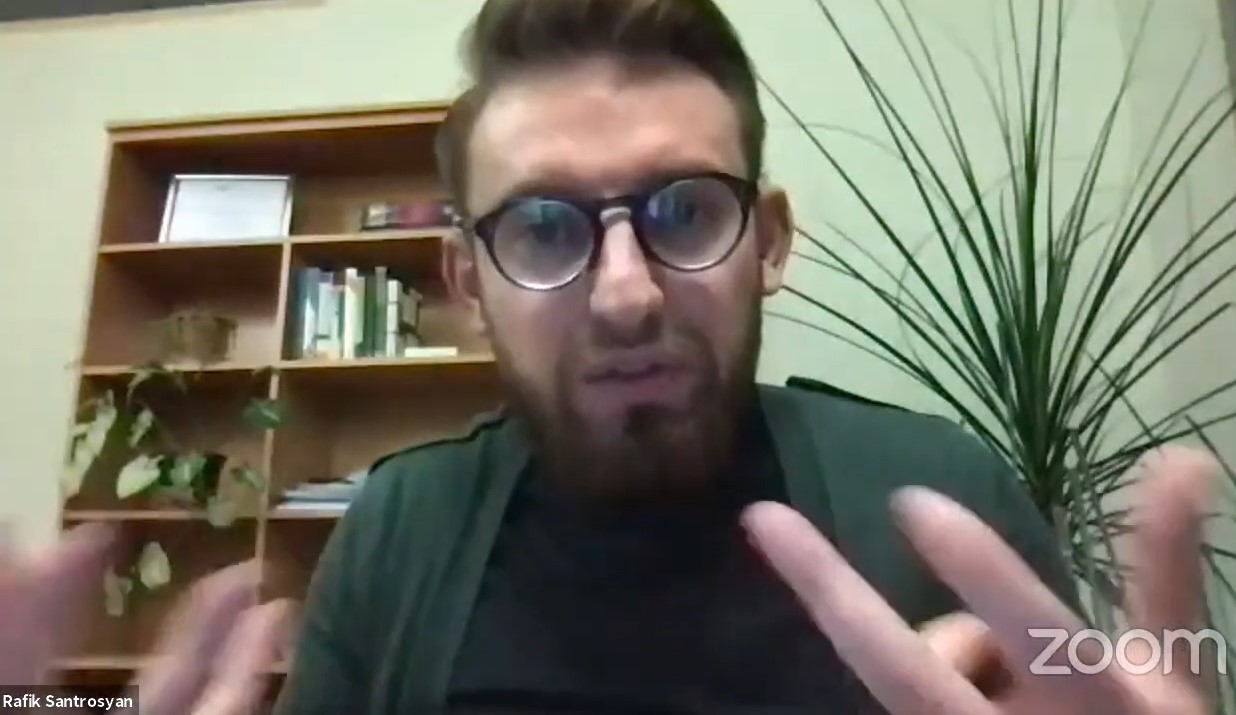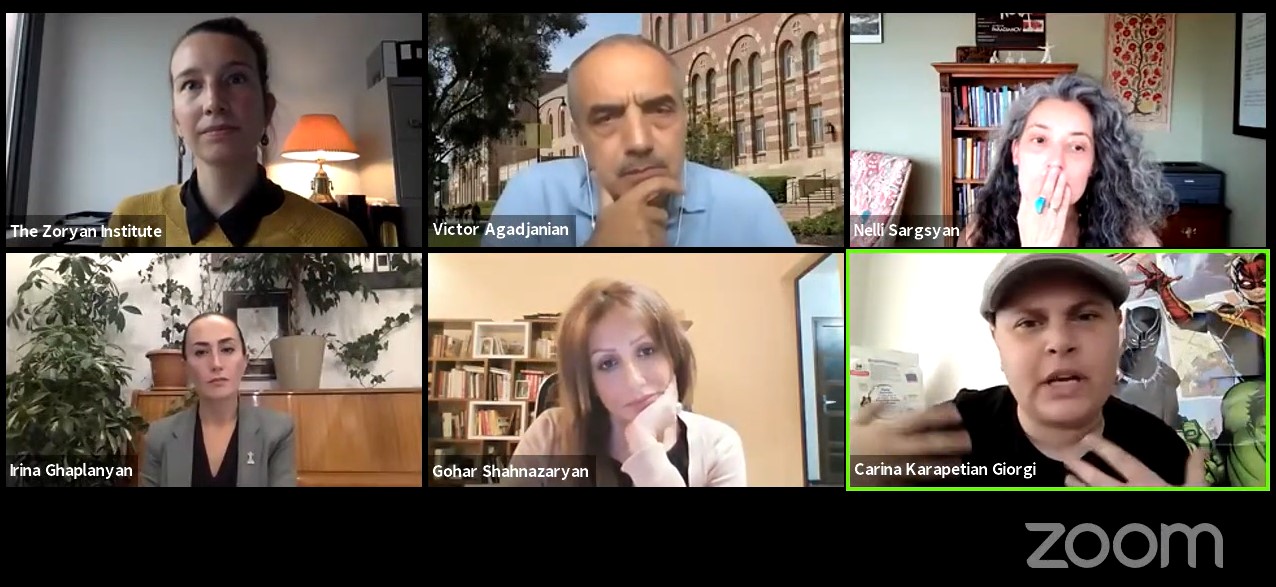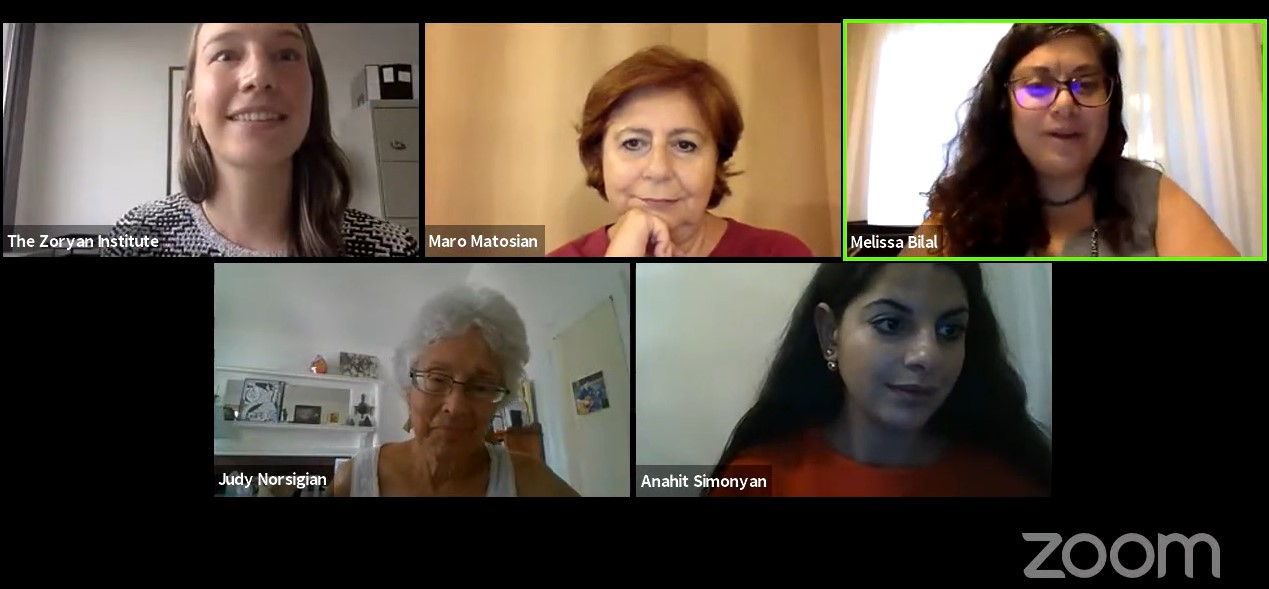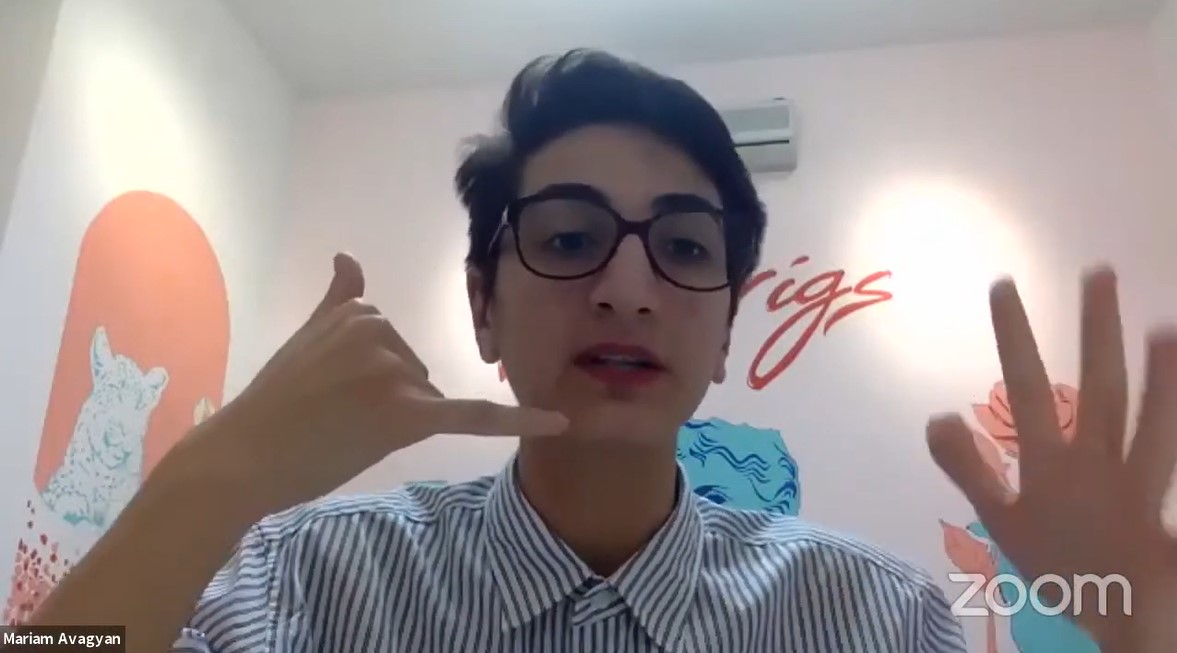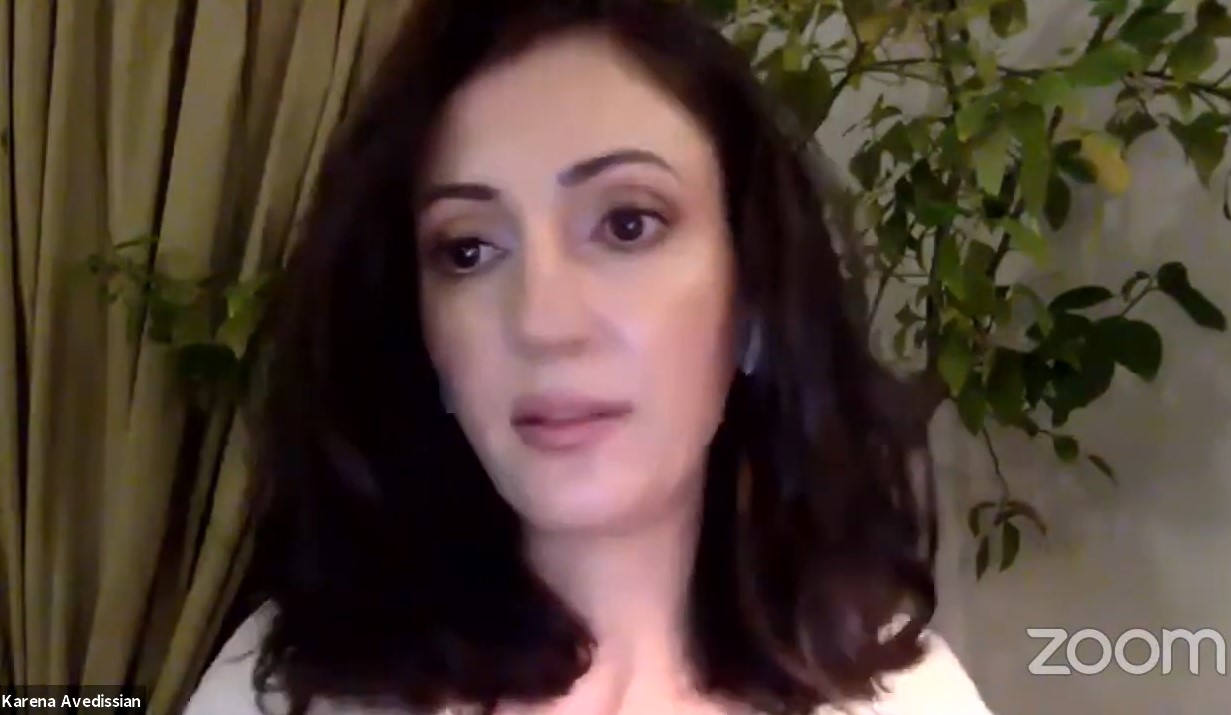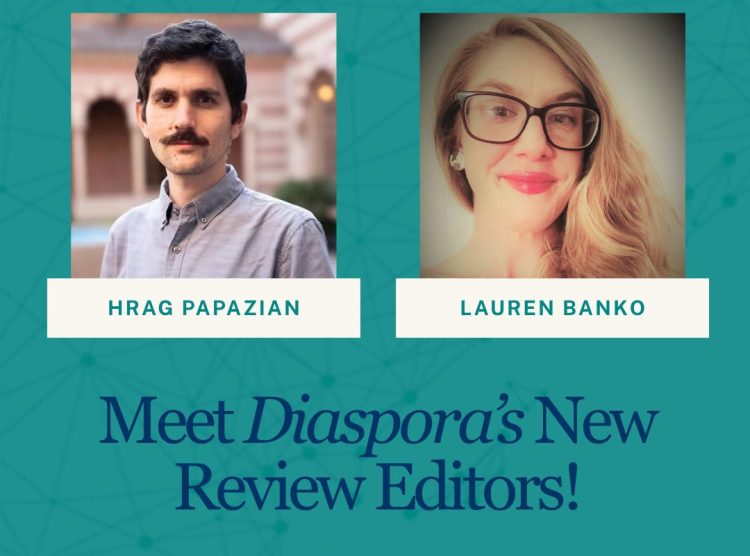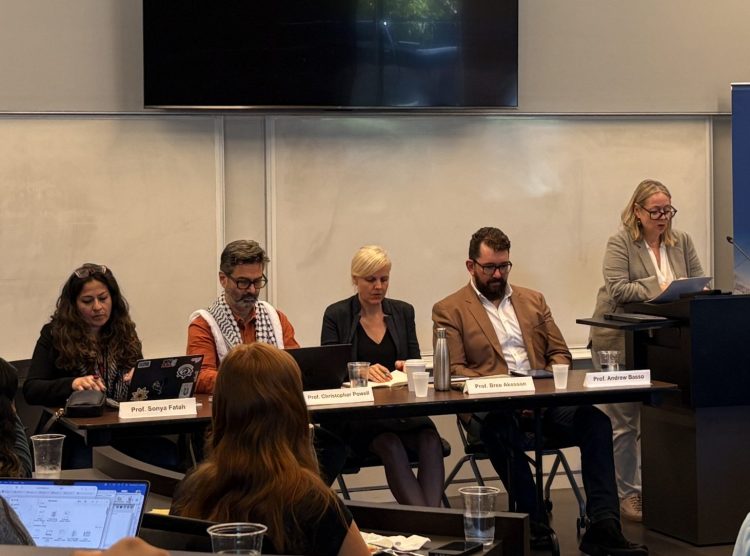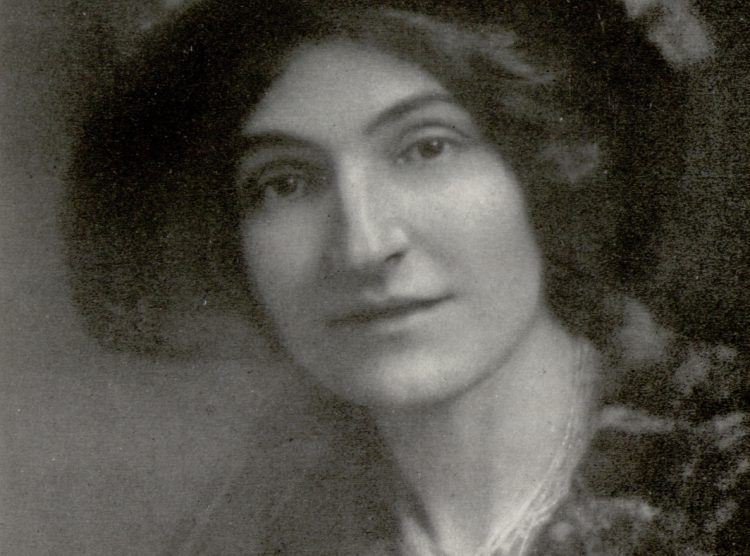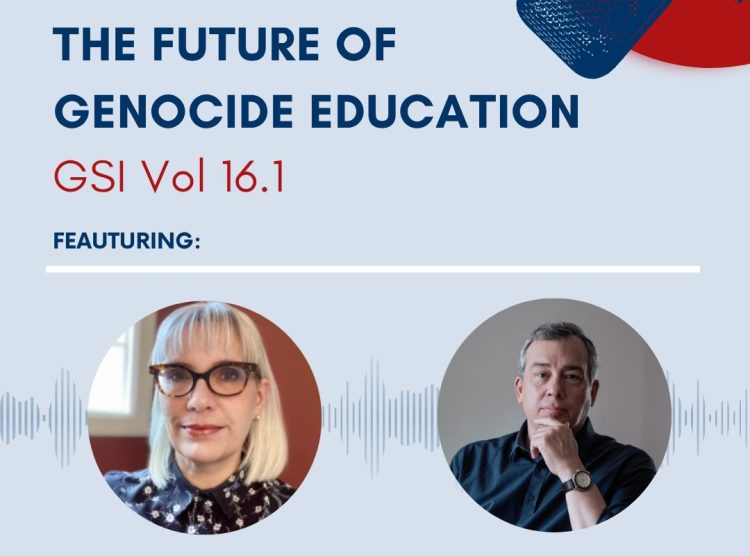Gender and Intersectionality in Post-Soviet Armenia
Zoom, October 15 & 16, 2021: The conference, Gender and Intersectionality in Post-Soviet Armenia, took place virtually on October 15 and 16, 2021. This conference was organized by the Zoryan Institute in partnership with the UCLA Promise Armenian Institute to bridge academic scholarship on gender issues in Armenia, with work being done on the ground.
This conference brought together 17 leading scholars and specialists from different parts of the world, who are all actively involved in addressing gender-related issues in present-day Armenia, whether it be through scholarship, activism or humanitarian efforts. The thought-provoking presentations and engaging discussions culminated in forward-thinking observations and recommendations for decision-makers in a variety of relevant sectors within the Republic of Armenia and universally.
Presentations were delivered across 4 panels over a 2-day period. The first day, panels included “Armenia’s Gender Trouble: Deconstructing “Anti-Genderism” From Historical, Linguistic, and Socio-Cultural Anthropological Perspectives” and “Politics and Representation: Uprooting Sexism, Racism, and Homophobia in Education, Decision Making, and Public Discourse.”
In the first panel, chaired by Prof. Melissa Bilal, we heard from 4 scholars who spoke about topics ranging from national anxiety around gender to the framing of gender in Armenian language. Sevan Beukian, sessional instructor at the University of Alberta, opened the conference with a presentation linking trauma as the result of the Armenian genocide with the patriarchal and heteronormative nationalist discourse in Armenia.
“Trauma is part of the nation-building narrative, but has also ingrained heternormative discourses linked to survival and preservation of life in Armenia…Feminism and homosexuality do not fit the national narrative and become externalized as the national enemy…This leads to violence against marginalized populations.”
– Sevan Beukian
In the second panel, led by Prof. Victor Agadjian, speakers discussed themes ranging from discrimination towards women in decision-making positions to exploitation of female Armenian migrants in the US. Irina Ghaplanyan reflected on her personal experience as the former Deputy Minister of Environment in Armenia, and stated that “sexism in government is displayed through body communication and greetings”, referring to when men refused to acknowledge her presence with a handshake at official government meetings and events.
The second panel culminated in a dynamic Q&A session delving deeper into the issues brought to the forefront throughout the day. When panelists were asked whether the dual crises of the COVID-19 pandemic and the Second Artsakh War could provide an impetus for change for gender issues in Armenia, Gohar Shahnazaryan, director of Yerevan State University Center for Gender and Leadership Studies, responded that this would require including women in decision-making positions, and increased focus on gender equality and women’s engagement within recovery plans.
On the second day of the conference, panels included, “Equity and Empowerment: Creating and Distributing Resources Beyond the Gap”, again chaired by Prof. Melissa Bilal, which discussed themes such as domestic violence and women’s labour market participation, and “War, Trauma, and Displacement: Gender and Building Peace”, chaired by Prof. Hourig Attarian, which explored women’s roles in conflicts and rebuilding efforts, and attacks on women soldiers, human rights defenders, and activists.
Judy Norsigian, founding member and chair of the board of Our Bodies, Ourselves, covered a range of issues in her presentation, including the need to address structured inequality to prevent violence against marginalized populations, and the need to engage a range of actors to address multifaceted gender-related issues.
“If we meet people where they are now, there may be opportunities…to inspire people around us to begin questioning their long-held, discriminatory ideas.”
– Judy Norsigian
The need for supportive legislation, social security, and community services to support women’s rights and gender equality was brought up in multiple presentations, including those of Anahit Simonyan, co-founder and director of the Human Rights Research Centre in Armenia, and Mariam Avagyan, director of Kooyrigs Armenia.
If you missed the conference, or would like to revisit any of the panel discussions, recordings of both days of the conference can be viewed here.
The conference had a wonderful turnout, attracting a diverse international audience. The Zoryan Institute would like to thank its organizing partner, the UCLA Promise Armenian Institute, as well as conference supporters, the National Association for Armenian Studies and Research, the Ararat-Eskijian Museum, the UCLA Gender Studies Department, the UCLA Center for Near Eastern Studies, and individual donors, for making this conference possible. The Zoryan Institute would also like to thank Prof. Melissa Bilal for her immense contributions to this conference, from conceptualization to execution.
The Zoryan Institute looks forward to continuing the discussion around issues related to gender and intersectionality in Armenian society today. The Zoryan Institute, in consultation with conference chairs and panelists, will be publishing a detailed report on the findings and recommendations presented in this conference.

